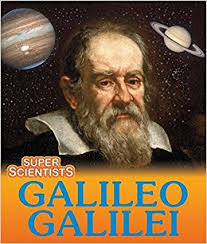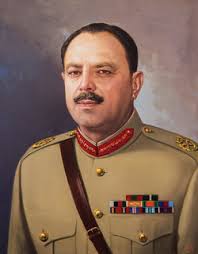Answers of Quiz 1918 (Galileo Galilei and Science)
1. On 15 February 1564
2. He was an Italian polymath: astronomer, physicist, engineer, philosopher, & mathematician, he played a major role in the scientific revolution of the 17th century.
3. Italy
4. Astronomy, physics, engineering, natural philosophy, mathematics
5. His contributions to observational astronomy include the telescopic confirmation of the phases of Venus, the discovery of the four largest satellites of Jupiter (named the Galilean moons in his honour), & the observation & analysis of sunspots. Galileo also worked in applied science and technology, inventing an improved military compass & other instruments.
6. On 8 January 1642
7. 77 years
8. Father of observational astronomy, Father of modern physics, Father of scientific method, Father of science
9. Science is a systematic enterprise that builds & organizes knowledge in the form of testable explanations & predictions about the universe.
10. Thales
11. Galileo Galilei
12. Science is typically subdivided into:
(i) Natural sciences, which study the material universe. Natural science can be divided into two main branches:
(A) Life Science (or Biological Science), as Biology, Medicine etc
(B) Physical Science, is subdivided into branches, including physics, astronomy, chemistry, & Earth science.
(ii) Social sciences, which study people & societies. The main social sciences include economics, political science, human geography, demography, & sociology.
(iii) Formal sciences, are disciplines concerned with formal systems, such as logic, mathematics, statistics, theoretical computer science, information theory, game theory, systems theory, decision theory, and theoretical linguistics.
(iv) Applied Sciences, disciplines which use engineering & medicine. As thermodynamics, heat transfer, fluid mechanics, statics, dynamics, mechanics of materials, kinematics, electromagnetism, materials science, earth sciences, engineering physics.
13. Scientific method is a body of techniques for investigating phenomena, acquiring new knowledge, or correcting & integrating previous knowledge. It consists of Observation, Experiment, Testing, Hypothesis, Theory & Law.
14. A scientist is a person engaging in a systematic activity to acquire knowledge that describes and predicts the natural world.
15. Science provides an understanding of a universal experience. Arts provide a universal understanding of a personal experience.
16. The words science & technology can and often are used interchangeably. But the goal of science is the pursuit of knowledge for its own sake while the goal of technology is to create products that solve problems & improve human life. Simply put, technology is the practical application of science.
17. Science acknowledges reason, empiricism, & evidence, while religions include revelation, faith & sacredness whilst also acknowledging philosophical & metaphysical explanations with regard to the study of the universe.
2. He was an Italian polymath: astronomer, physicist, engineer, philosopher, & mathematician, he played a major role in the scientific revolution of the 17th century.
3. Italy
4. Astronomy, physics, engineering, natural philosophy, mathematics
5. His contributions to observational astronomy include the telescopic confirmation of the phases of Venus, the discovery of the four largest satellites of Jupiter (named the Galilean moons in his honour), & the observation & analysis of sunspots. Galileo also worked in applied science and technology, inventing an improved military compass & other instruments.
6. On 8 January 1642
7. 77 years
8. Father of observational astronomy, Father of modern physics, Father of scientific method, Father of science
9. Science is a systematic enterprise that builds & organizes knowledge in the form of testable explanations & predictions about the universe.
10. Thales
11. Galileo Galilei
12. Science is typically subdivided into:
(i) Natural sciences, which study the material universe. Natural science can be divided into two main branches:
(A) Life Science (or Biological Science), as Biology, Medicine etc
(B) Physical Science, is subdivided into branches, including physics, astronomy, chemistry, & Earth science.
(ii) Social sciences, which study people & societies. The main social sciences include economics, political science, human geography, demography, & sociology.
(iii) Formal sciences, are disciplines concerned with formal systems, such as logic, mathematics, statistics, theoretical computer science, information theory, game theory, systems theory, decision theory, and theoretical linguistics.
(iv) Applied Sciences, disciplines which use engineering & medicine. As thermodynamics, heat transfer, fluid mechanics, statics, dynamics, mechanics of materials, kinematics, electromagnetism, materials science, earth sciences, engineering physics.
13. Scientific method is a body of techniques for investigating phenomena, acquiring new knowledge, or correcting & integrating previous knowledge. It consists of Observation, Experiment, Testing, Hypothesis, Theory & Law.
14. A scientist is a person engaging in a systematic activity to acquire knowledge that describes and predicts the natural world.
15. Science provides an understanding of a universal experience. Arts provide a universal understanding of a personal experience.
16. The words science & technology can and often are used interchangeably. But the goal of science is the pursuit of knowledge for its own sake while the goal of technology is to create products that solve problems & improve human life. Simply put, technology is the practical application of science.
17. Science acknowledges reason, empiricism, & evidence, while religions include revelation, faith & sacredness whilst also acknowledging philosophical & metaphysical explanations with regard to the study of the universe.



Comments
Post a Comment